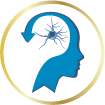Mindfulness is a mental state achieved by focusing one’s awareness on the present moment, while calmly acknowledging and accepting one’s feelings, thoughts, and bodily sensations. It has become increasingly popular in recent years, and is now widely practiced in both medical and psychological settings. Neuroplasticity is the ability of the brain to form and reorganize synaptic connections, in response to changes in the environment or to new information. This ability has been shown to be essential for learning, memory, and adaptation to new situations.
What is Mindfulness?
Mindfulness is an ancient Buddhist practice that has been adapted and popularized in the West. It is a way of being aware of and paying attention to the present moment, with an attitude of openness, curiosity, and acceptance. Mindfulness involves being aware of one’s thoughts, feelings, and bodily sensations in the present moment, without judgment or attachment. It is an intentional practice of being present and paying attention to the present moment, without getting caught up in thoughts about the past or the future. Mindfulness can be practiced through activities such as yoga, meditation, and other mindful movement practices.
Benefits of Mindfulness
Mindfulness has been found to have a variety of positive effects on physical and mental health. It has been shown to reduce stress, anxiety, and depression, as well as improve mood, concentration, and sleep. Mindfulness has also been linked to improved immune system functioning, reduced inflammation, and improved cardiovascular health. Additionally, mindfulness has been found to help people manage chronic pain, and has even been shown to reduce the risk of relapse in people with substance use disorders.
Neuroplasticity
Neuroplasticity is the ability of the brain to reorganize itself by forming new neural connections and pathways in response to new experiences or information. It is the process by which the brain adapts and changes in response to its environment. Neuroplasticity is an important part of learning, memory, and adaptation to new situations. Neuroplasticity has been found to be a key factor in recovery from brain injuries, as well as in the development of new skills and abilities.
Benefits of Neuroplasticity
Neuroplasticity has been found to have a variety of positive effects on physical and mental health. It has been linked to improved learning, memory, and cognitive functioning, as well as reduced symptoms of anxiety and depression. Neuroplasticity has also been found to help people manage chronic pain, and has even been shown to reduce the risk of relapse in people with substance use disorders. Additionally, neuroplasticity has been found to help people recover from brain injuries, and has even been found to help people develop new skills and abilities.
The Relationship between Mindfulness and Neuroplasticity
Recent research has found that mindfulness and neuroplasticity may be related. Studies have found that mindfulness practices such as meditation can lead to changes in brain structure and function, which may be related to improved cognitive functioning. Additionally, research has found that mindfulness can lead to increased neuroplasticity, which may help people learn new skills and abilities, and recover from brain injuries. Finally, research has found that mindfulness may help reduce stress and anxiety, which can lead to improved mental health and increased neuroplasticity.
Conclusion
Mindfulness and neuroplasticity are two important concepts in modern psychology and medicine. Mindfulness is a mental state achieved by focusing one’s awareness on the present moment, while calmly acknowledging and accepting one’s feelings, thoughts, and bodily sensations. Neuroplasticity is the ability of the brain to form and reorganize synaptic connections, in response to changes in the environment or to new information. Recent research has found that mindfulness and neuroplasticity may be related, and that mindfulness can lead to increased neuroplasticity, which may help people learn new skills and abilities, and recover from brain injuries.












Leave a comment